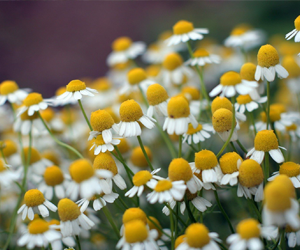
Herbal Remedies for Skin Allergies
Meet my NEW GUEST AUTHOR:
Rashes, like most other skin irritations, can pop up almost anywhere – leading to itching, bumps, redness, and other unpleasant symptoms. Treating these irritations can be incredibly frustrating, as their cause isn’t always easy to identify. Generally, skin irritations come from plants, medications, foods, illnesses, or allergies. If you can factor out the causes that can be easier to pinpoint, like exposure to plants like poison ivy, side effects of medications you might be taking, or illnesses like chickenpox or measles, you’re left with allergies – which can take a lifetime to figure out.
Luckily, you can still treat the symptoms of a skin allergy without knowing the cause, using the therapeutic powers of herbal remedies. Staying away from pharmacological treatments lets you avoid making the condition worse thanks to unpredictable side effects, and gives you the opportunity to help your body heal in a more natural way.
Nettle Leaf
This herb is incredibly effective for treating all kinds of allergic reactions as it naturally inhibits the body’s production of histamine, a chemical involved in local immune responses, inflammatory response, and the central nervous system. Nettle leaf can be prepared as a tincture or a tea, often mixed with other beneficial herbal remedies like peppermint leaf and red raspberry leaf, but for acute allergic reactions, it can be taken in the form of a capsule made from dried nettle leaves.
Honey
While not necessarily an herbal remedy, there is plenty of anecdotal evidence out there to support the use of raw, local honey to help the body adapt to the allergens present in a particular environment. To achieve the best results using this technique, find unprocessed honey from as close to where you live as you can – this provides allergy protection similar to getting an actual allergy “shot.” A spoonful of honey at least once a day is usually enough to help relieve any symptoms.
Chamomile
Not just a sleep aid, chamomile is a powerful herbal remedy for treating skin allergies. Thanks to this plant’s antibacterial, antiviral, and antifungal effects, a washcloth soaked in chamomile tea and applied to an affected part of the skin can help promote healing, relieve itching, and reduce inflammation, while providing a soothing sensation to calm your irritated skin. Use the compress several times a day, leaving it on the area for at least ten minutes at a time.
Chamomile can also be purchased as an essential oil. Mix the oil with a carrier oil, like coconut oil, and apply it directly to the rash several times a day, until the irritation is gone.
Neem
Also known as Indian lilac or margosa, Neem has traditionally been used to treat a wide variety of skin ailments, including scabies, acne, eczema, and infections. In addition to powerful anti-inflammatory, anti-irritant, antiviral, antibacterial, antifungal, and analgesic properties, this useful herb contains antioxidants that help protect and rejuvenate skin cells.
Neem extract is available in many skin care products, including soap, cream, and lotion, or you can mix neem oil with water or a carrier oil to apply it to your skin allergy. Simmering neem leaves in water for 15 to 20 minutes provides a powerful tonic you can use on a washcloth or cotton ball for a compress on the affected area.
Coriander
This ancient Ayurvedic remedy has been used on rashes and itchy skin for years, taking advantage of coriander’s antiseptic, anti-irritant, and anti-inflammatory properties. With its calming fragrance and soothing sensation, coriander can be prepared in a number of ways to provide relief from skin allergies. A paste made from ground leaves can be directly applied to the area, or you can make a coriander tea or juice to consume daily until the rash clears up.
Thanks to the healing abilities of these magical herbal remedies, you don’t need to resort to medicated creams or lotions to treat minor skin allergies. However, if a rash persists for more than a few days, or gets worse after your attempted treatment, you might consider seeking the advice of your doctor or another health care professional to make sure it’s nothing more serious. You can always discuss the potential of using natural therapies with your health care provider once you’ve identified the cause of the irritation.
Thank you to Jon Reyes who wrote this article. Jon is a guest author from Steam Shower Store and is a respected and expert voice in a plethora of health related subjects with over 10 years of writing under his belt.
NOTE: You can find the herbs Chamomile in capsule and essential oil forms on my website: www.momsherbsshop.com – Remember to sign-up for the FREE membership with your first $40 order!
Leave a Comment
If you would like to make a comment, please fill out the form below.














Hey! This post could not be written any better! Reading this post reminds me of my old room mate! He always kept chnttiag about this. I will forward this article to him. Pretty sure he will have a good read. Thank you for sharing!